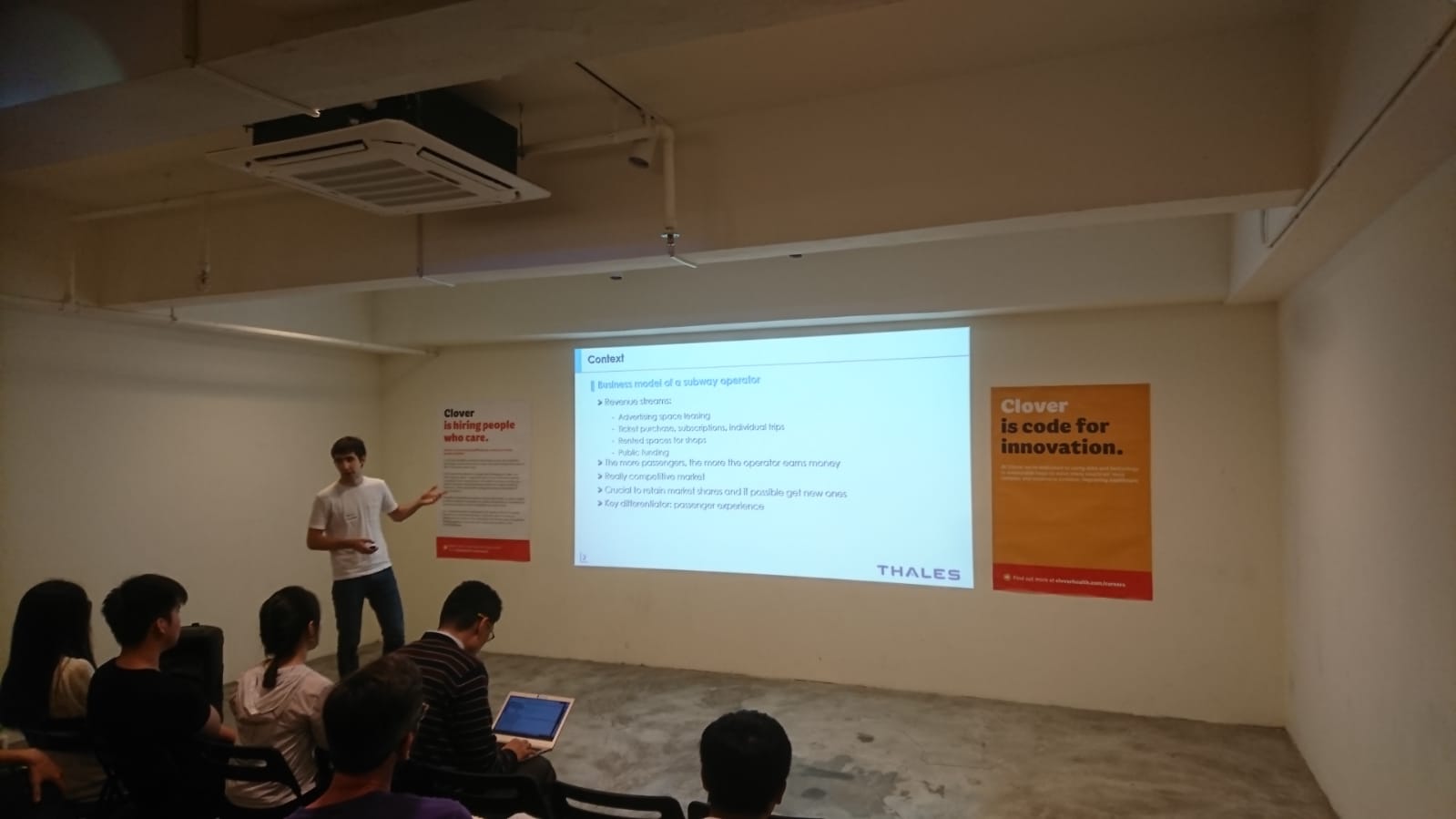
This week I gave my first talk at a meetup. It was in Hong Kong on the occasion of episode 11 of the Hong Kong machine learning meetup. It was a fantastic experience and I am going to relate why.
How did I come up to talk at a meetup?
In the past few years, I have been attending many meetups especially in Paris where there is an important community of developers. I strongly recommend them. I have been at:
- the Paris Android User Group: a good place to learn about Android development. Really good talks and organization.
- the Deep Learning Paris meetup: this is the meetup for data scientists who are keen to gain knowledge on deep learning topics.
- the Big Data and Machine Learning meetup: various content and interesting use cases. I would say it is more focused on applied machine learning than research and this is very practical. I particularly remember talks from data scientists at Quantmetry and Thales.
Each time, I learned a ton and I have met people that shared the same passion. Becoming a player was a goal, either by being part of the organization staff or by proposing a talk.
And one day the opportunity showed up! I was enrolled for a meetup about ML in Hong Kong and the organizer sent an e-mail saying that he was looking for a third speaker. I immediately jumped at the chance and sent a message to the organizer. I had an idea of presentation and I thought it could be interesting for the community. He kindly added me to the program and that was it, I was going to talk at my first meetup at the age of 22.
Preparation
My subject was: how to help metro operators enhance the passenger experience using time series forecasting techniques? I thought it was interesting to answer a question and present a concrete use case. I usually prefer talks with examples to theoretical presentations. My aim was to gather all levels of data scientists by mixing general content, data visualizations and a little bit of math.
The challenging part was to summarize my work in 20 minutes. I thought it would be necessary to introduce the context first in order for the audience to understand why I was working on this project. It would also help interpret the results.
Then, I chose to present a summary of my work. It was challenging because I had too much to say! It was almost a month of research condensed in 15 minutes. I used the same approach for presenting than my actual work:
- exploratory analysis
- problem framing
- data preparation
- model choosing
- parameters tuning
- evaluation
- Go back to step 4 until the results are satisfying.
I presented three different approaches. For each of them, I first described the technique, then commented on the results and finally discussed the advantages and drawbacks. Following the exact same pattern is good when your aim is a comparison.
My conclusion included key takeaways, an opening to my current work and an invitation to ask questions and get in touch.
Once the plan done, I started working on my slides. I practiced my talk three or four times and I felt ready!
Presentation time!

It was time! The impostor syndrome was real. There were around 60 brilliant profiles including researchers, data scientists, mathematicians right there in front of me. Moreover, the talk was not in my mother tongue. But I went to the end of my talk and there were a couple of questions that I answered.
What I learned from this experience
Giving a talk is a unique experience and it makes you learn at full tilt. However, this is a demanding exercise for many reasons:
- The audience is heterogeneous in terms of expectations (some want theoretical explanations, others want code examples etc.) and levels (there are experienced scientists but also students). Therefore, building a talk that is interesting for everyone is challenging.
- People don’t know what you are going to talk about. They sometimes have never heard of your topic. So they have to go from zero to hero in 20 minutes. Almost impossible.
- For this meetup in particular, the language was an additional difficulty. The language by default was English but there were only a few people that were native speakers. When it comes to complex ideas, it is always more difficult to explain or to understand in a language you do not speak perfectly.
As far as my I am concerned, I think I should have spent more time on the technical part and less on the context. Two techniques would have been enough and it would have allowed me to spend more time on each one and go a little bit deeper. And I should have practiced more, especially because of my English.
Despite this, I learned a lot. One of the organizers encouraged me to have a look at a new Python module for time forecasting that has recently been released by Amazon. I am going to have a look at it very soon and this was an opportunity to have a discussion about time series in finance, about the work of a researcher on NLP and even have a discussion in French with a woman from the Czech Republic 😄.
As soon as I will have material for another talk I will look for an opportunity and I am confident I will do better than this time!